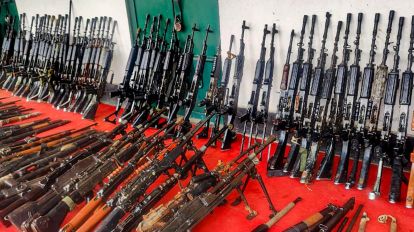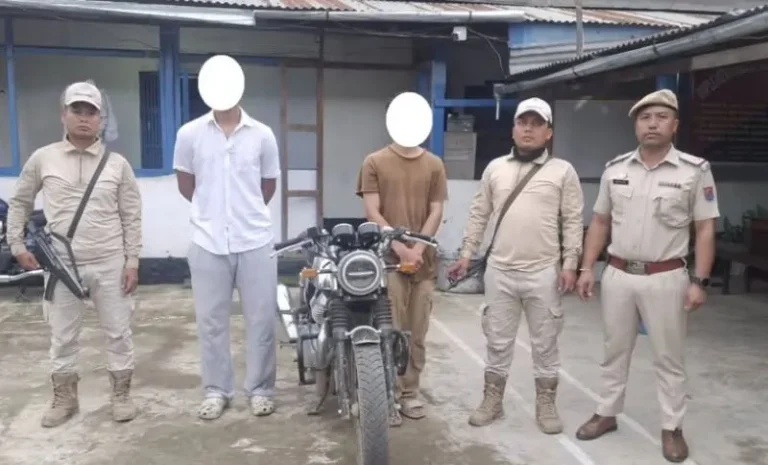The Janata Dal (United) MLA Defection in Manipur: A Look into Legal Proceedings and Political Ramifications
Introduction
Politics in India has seen its fair share of dramatic twists, particularly when it comes to party defections. Recently, Manipur has been in the spotlight following a high-profile shift of five Janata Dal (United) MLAs who defected to the ruling Bharatiya Janata Party (BJP) in 2022. Now, these MLAs are at the center of a legal dispute over their disqualification from the Legislative Assembly, with a three-week deadline issued for them to respond to proceedings. This case not only touches on the legality of defections but also highlights issues of party loyalty and accountability in a democracy. But what are the underlying details? How does the law come into play, and what might the political implications be for Manipur and India at large?
This article delves deep into the nuances of this ongoing case and the broader political and legal context surrounding it.
The Background of Defection in Manipur
Defections, or “party switching,” have been part of Indian politics for decades. In a country where political dynamics often shift with the changing seasons, defections are not unusual. However, the defection of five JD(U) MLAs to the BJP in Manipur raised significant legal and political questions.
Why Did These Defections Occur?
The reasons behind defections are often complex, involving personal, political, and ideological factors. JD(U) leaders allege that these MLAs were swayed by personal gain or the promise of greater influence. Yet, regardless of the motivations, the party-switching brought legal complications given that JD(U) and BJP have historically represented different ideological stances.
The Role of Disqualification Proceedings
When an elected representative switches parties, the Speaker of the Assembly has the authority to conduct disqualification proceedings under India’s anti-defection laws, specifically under the Tenth Schedule of the Indian Constitution. This case, however, lingered in political and legal limbo until recently, when the Supreme Court directed that all disqualification proceedings must be dealt with promptly.
The Legal Battle: Understanding Disqualification in India
The primary law governing defections in India is the Tenth Schedule, added to the Indian Constitution in 1985. The law was intended to curb the menace of “political horse-trading,” but its interpretation and implementation have often been contentious. Here’s how it applies in this situation.
Key Points of the Tenth Schedule
- Defining Defection: According to the Tenth Schedule, a legislator faces disqualification if they voluntarily give up membership of their party or if they vote against party directives without permission.
- Role of the Speaker: The Speaker has the final authority to rule on disqualification matters, a provision that has often led to legal disputes about impartiality.
- Judicial Review: The Supreme Court, in various judgments, has confirmed its authority to review decisions made by Speakers, particularly when there are delays or alleged bias.
The JD(U) leaders argue that these MLAs should be disqualified for violating the Tenth Schedule’s guidelines. They believe that a timely resolution to these disqualification cases is essential to uphold the integrity of democratic principles.
The Supreme Court’s Directive
After almost a year, the Supreme Court stepped in to order a timely resolution, recognizing that the prolonged delay could undermine public faith in the disqualification process. The three-week deadline imposed by the Speaker aligns with the Supreme Court’s directive, emphasizing transparency and urgency in dealing with political defection cases.
Implications of the JD(U) Defections for Manipur’s Political Landscape
Manipur is not just a state in India’s northeast; it’s a politically vibrant region with strategic importance. The defection of JD(U) MLAs to the BJP has the potential to influence Manipur’s political dynamics, affecting both the ruling party’s image and the opposition’s stance.
Strengthening BJP’s Hold
The BJP stands to gain significantly if the JD(U) defectors are permitted to stay in the Assembly. This would solidify their majority and minimize opposition voices within the legislative body, allowing them to pass legislation with minimal resistance.
Impact on JD(U) and Other Regional Parties
For the JD(U), the loss of five MLAs is not just a numbers game; it’s a blow to its credibility in Manipur. Regional parties are often the lifeline for states like Manipur, and a loss of key members to a national party like BJP might impact JD(U)’s influence in future elections. This could also set a precedent, potentially encouraging further defections across regional parties.
Voter Sentiment and Public Perception
Defections can have a significant impact on public perception, leading to voter disillusionment or frustration. This particular case might shape voter sentiment in future elections, as citizens weigh in on party loyalty and accountability.
What Happens Next? Potential Outcomes and Future Scenarios
The upcoming three weeks are crucial for both the BJP and JD(U). The MLAs now have the option to justify their defection, but the Speaker’s decision could lead to several possible outcomes.
- Disqualification of MLAs: If the Speaker finds sufficient grounds for disqualification, these MLAs will lose their seats, leading to by-elections that could alter the Assembly’s composition.
- Retained Membership: Should the Speaker rule in favor of the MLAs, it could strengthen BJP’s hold and prompt JD(U) to reconsider its strategy in the state.
- Extended Legal Battle: If the decision leads to further litigation, the case could be drawn out, possibly impacting JD(U) and BJP’s standing among voters.
The Broader Context: Anti-Defection Law Reform
The JD(U) MLA case brings attention to India’s anti-defection law and whether it still effectively serves its purpose. The law has helped curb political instability, but it has also been criticized for granting Speakers excessive power in matters of disqualification.
Some lawmakers and legal experts argue for reforms to make the process more transparent and less influenced by political bias. A stronger, more impartial system might prevent delays like the one seen in this case.
Conclusion
In the complex arena of Indian politics, defections are a reminder of the challenges inherent in balancing political ambition with public accountability. The case of the JD(U) MLAs in Manipur offers a closer look at these dynamics, highlighting the need for prompt, fair disqualification processes and the value of consistent party allegiance.
The decisions made in the coming weeks will not only impact the careers of the five defecting MLAs but may also shape the future of anti-defection legislation in India. Regardless of the outcome, the case underscores a central principle of democratic governance—holding representatives accountable to their electorate.
FAQs
- What is the Tenth Schedule of the Indian Constitution?
The Tenth Schedule is a part of the Indian Constitution that addresses political defections by disqualifying legislators who switch parties. - What led to the defection of the JD(U) MLAs in Manipur?
The reasons aren’t fully public, but speculation points to ideological shifts or promises of greater influence. - What is the Supreme Court’s role in this case?
The Supreme Court directed that the disqualification proceedings be expedited to ensure timely resolution. - How could this case impact the BJP and JD(U) in Manipur?
If the MLAs are disqualified, BJP might lose legislative strength, impacting their ability to pass certain laws. If not, BJP’s hold would strengthen. - Is there a possibility of anti-defection law reform?
The JD(U) case raises questions about the need for reforms to prevent delays and reduce political bias.




